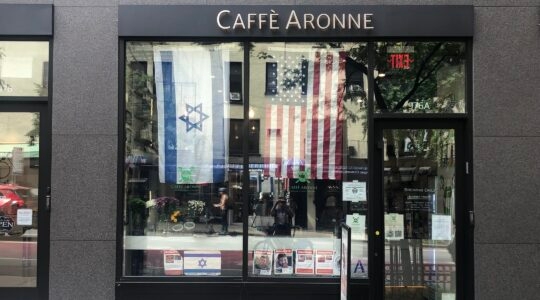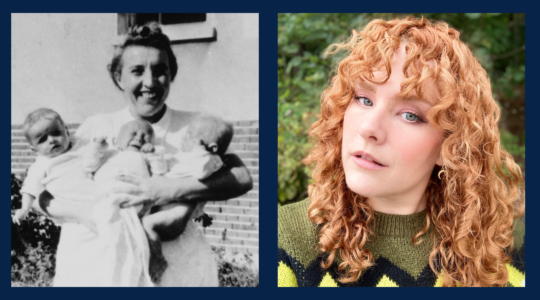A backlash against the nationwide trend toward stricter standardized testing is beginning to build within a small but influential group of Jewish day schools.
Although Rabbi Martin Schloss, director of student services for New Yorkís Board of Jewish Education, speculated that ìWe actually may have more schools than last yearî taking New York Stateís fourth-grade reading test this month, several influential schools are sitting it out, including the Heschel School, Rodeph Sholom, and the SAR Academy in Riverdale. In 1999, SAR was the highest ranked of all Jewish schools that took the English Language Arts test.The New York State Association of Independent Schools, including Jewish and non-Jewish private schools, has supported the trend, suggesting to member institutions that the state tests were not necessary.
Marvin Schick, president of the Rabbi Jacob Joseph network of schools and author of the recently released census of American Jewish day schools, said heíll suggest to his schoolsí educators that staying away from the tests is an ìexcellent idea.îìItís just wrong to insist on every single child taking the same test, particularly at such a young age,î he said. The tests, criticized by many for being excessively difficult, were ìcreating a sense of failure among too many children,î said Schick, ìsomething that wonít help their educational or social or emotional advancement. I think itís an entirely unreasonable test. Itís absurd to give tests of that severity. Thereís an abundance of other tests to rely on.
The publicity that accompanied the 1999 scores only added to the problem.ìWeíre living in a time of extraordinary parental anxiety about how their children are doing,î Schick said. ìWeíve reached a point where there has to be some slack in the day school system to accommodate in a healthy positive way, a measure of educational failure. There are many different ways to learn and to develop in a healthy way. Not all kids learn at the same pace. Iím just turned off [by the obsession with unbending standards]. Ö Itís a reaction to too much tolerance and softness, but why go in the other direction to such an extreme?îSchick said the same problem exists in Hebrew studies, as well: ìA kid doesnít excel in Gemara? Big deal. Make that kid feel healthy, happy, successful, comfortable in his Yiddishkeit, and maybe heíll come to Gemara later on. Thereís so much pressure on these kids, and so many of these kids are troubled in terms of their relationship with parents, or classmates, or self-esteem, or what they see on the outside. … Kids donít need more tests, instead they need more people to talk to.
Irwin Shlachter, headmaster of Rodeph Sholom and an executive board member of the independent school associationís headmasterís guild, said the state tests ìare really for the public schools, as the state is struggling to heighten the levels of accountability. This kind of test serves no purpose for us when it comes to validating the job weíre doing.ìWhen it comes to the public schools and the state, our students have opted out of that system ó a system that hasnít worked. The school system, particularly in this city, has failed us. If I have to measure my achievements by their standards, then Iíve failed, too.
Shlachter said standardized tests ìassume that all kids learn the same way. All the new brain research indicates the contrary, that one should engage in differentiated learning; there are kids who are auditory learners, or visual learners, kids who can excel in one way but may not show the same aptitude on a standardized reading or math test.îThe publicized test scores, posted on the Internet, combined with the examís difficulty might be prompting some schools to ìteach to the test,î as more than one principal put it.
David Yammer, Heschelís school psychologist, said, ìI donít think you should ever teach to the test. A test is a way to evaluate if the class comprehends what youíre teaching. In this case, though, when we have our own curricula and goals but we arenít writing the test, there can be mismatched purposes. If you worry first about meeting the stateís test, then youíre letting other people do your thinking for you.îAdditionally, said Yammer, ìthe information we got from the test last year was insufficient. We really need to know from a test what parts of our program are working and what we need to do differently. Last yearís test didnít do that.îCalls to SAR for comment went unanswered.The BJEís Schloss believes the choice of taking the test is ìup to the individual school. The independent schools, as a group, have resisted taking the test, and that certainly doesnít put a knock on their quality. They march to a successful drummer. They value their independence.
Along the same lines, Theodore Sizer, former dean of the Harvard Graduate School of Education, recently told Newsweek that heís found ìvery few correlations between sophisticated standardized testing and long-term intellectual performance and character habits.înHarold Levy, the new interim city schools chancellor, has his eye on Yeshiva University. The latest edition of The Commentator, YUís student newspaper, reports that last December, while Levy was a member of the New York State Board of Regents, he sent a letter to the YU administration asking that the university explain its serial confiscation of YU student newspapers, a situation that has since led YU to pay compensation to The Commentator.The Board of Regents is the state entity responsible for chartering colleges within New York.Levy, who grew up attending public schools a few blocks from YU, did not return calls to The Jewish Week regarding the letter. But the Commentator quotes Harold Cohen, a member of the Regentsí higher education committee, saying that if the University does not respond properly to Levyís letter, ìthe matter may be brought to the Board of Regents,î and YU may be censured, among other possibilities.Cohen told The Commentator, ìFor the University to intrude on its own newspaper is wrong. This particular case seems to reflect improper behavior on behalf of the administration. I am a strong advocate of freedom of speech; itís a part of what a university is and should be.îA spokesman for YU said the school planned to respond to Levyís letter.




